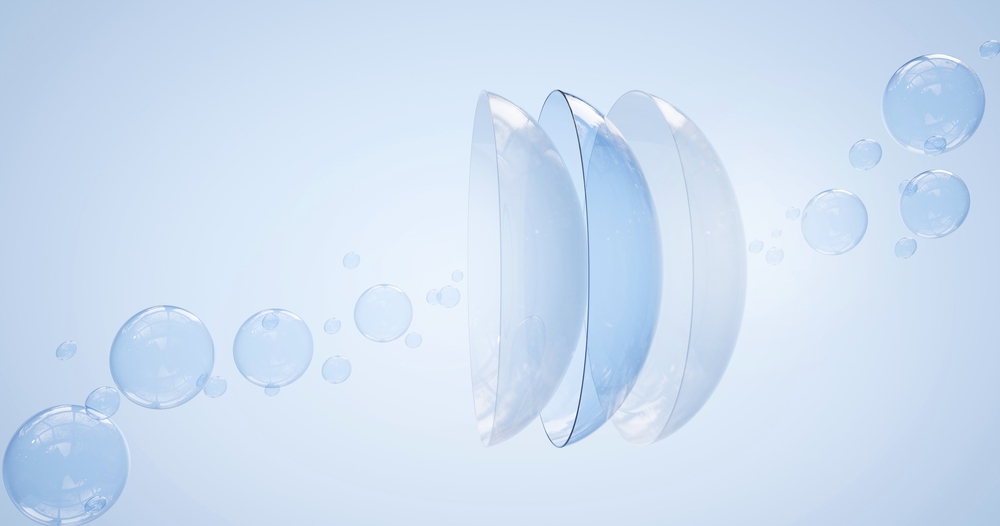
Scleral Contact Lenses: What Conditions Do They Treat?
For many people, traditional contact lenses work well for improving vision. However, some patients need a more specialized approach to eye care, especially when dealing with complex eye conditions. Scleral contact lenses offer a unique solution for various corneal issues, bringing comfort and enhanced vision to those who may have struggled with standard lenses in the past. Here’s everything you need to know about scleral lenses and the conditions they’re designed to treat.
What Are Scleral Contact Lenses?
Scleral contact lenses are larger than traditional lenses, vaulting over the cornea and resting on the sclera, the white part of the eye. Unlike regular contact lenses, which sit directly on the cornea, scleral lenses create a tear-filled reservoir between the lens and the cornea, providing comfort and stable vision even for individuals with irregularly shaped or damaged corneas. Here are some of the conditions that scleral lenses help treat.
Keratoconus
Keratoconus is a progressive eye condition that causes the cornea to thin and bulge into a cone-like shape, distorting vision. Scleral lenses help by providing a smooth, even surface that can improve vision and help protect the cornea from further damage.
Irregular Corneas
Irregular corneas may result from injuries, surgeries (such as LASIK or PRK), or conditions like corneal scarring and degenerative diseases. Scleral lenses offer a custom fit that can correct the irregularities in the corneal surface, providing clear vision and comfort.
Severe Dry Eye Syndrome
Patients with severe dry eye syndrome often struggle with discomfort from traditional contact lenses due to insufficient moisture on the eye's surface. Scleral lenses create a moisture-rich environment by holding a reservoir of fluid, helping to alleviate dryness and make contact lens wear more comfortable.
Post-Surgical Complications
Following corneal transplants or surgeries, some patients experience irregular vision or discomfort that traditional lenses can't address. Scleral lenses offer a comfortable, protective barrier that aids healing and restores visual clarity.
Ocular Surface Disease
Ocular surface disease encompasses several conditions, including Stevens-Johnson syndrome, ocular cicatricial pemphigoid, and other autoimmune conditions that impact the eye's surface. Scleral lenses help protect sensitive corneas by providing a soothing, hydrated environment.
Astigmatism
High levels of astigmatism, especially when coupled with other corneal irregularities, can be challenging to correct with regular lenses. Scleral lenses can be custom-designed to correct astigmatism, providing a clearer and more stable vision.
Pellucid Marginal Degeneration
Similar to keratoconus, pellucid marginal degeneration causes thinning in a specific area of the cornea, leading to a unique form of astigmatism and distortion. Scleral lenses offer the stability needed to improve vision by covering the irregular corneal shape.
What Are the Benefits of Wearing Scleral Lenses?
In addition to treating complex eye conditions, scleral lenses provide added comfort, especially for those who may have struggled with traditional contact lenses in the past. The tear-filled reservoir not only keeps the eyes hydrated but also helps alleviate any discomfort associated with corneal irregularities. Scleral lenses are highly customizable, providing a precise fit that enhances vision stability and comfort.
Schedule a Consultation with Flanders Family Eye Care Today
If you have struggled with traditional lenses or have been diagnosed with a corneal condition that impacts your vision, scleral lenses could be the ideal solution. At Flanders Family Eye Care, we provide thorough eye exams and scleral lens fittings to ensure each patient receives the most effective and comfortable vision correction possible.
Schedule a consultation with Flanders Family Eye Care to learn more about the benefits of scleral contact lenses and to determine if they’re the right choice for your vision needs. Visit our office in Flanders, New Jersey, or call (973) 447-9500 to book an appointment today.







